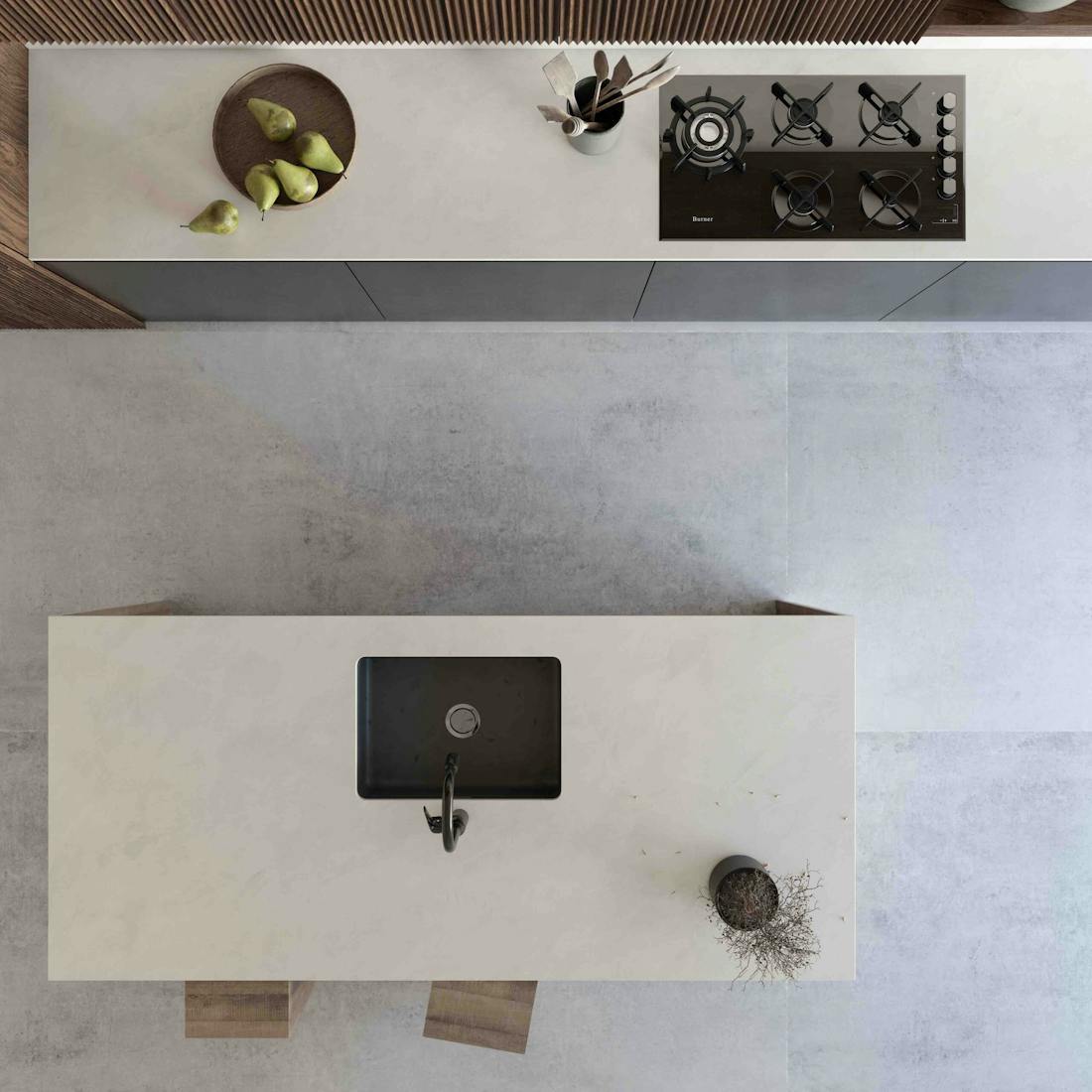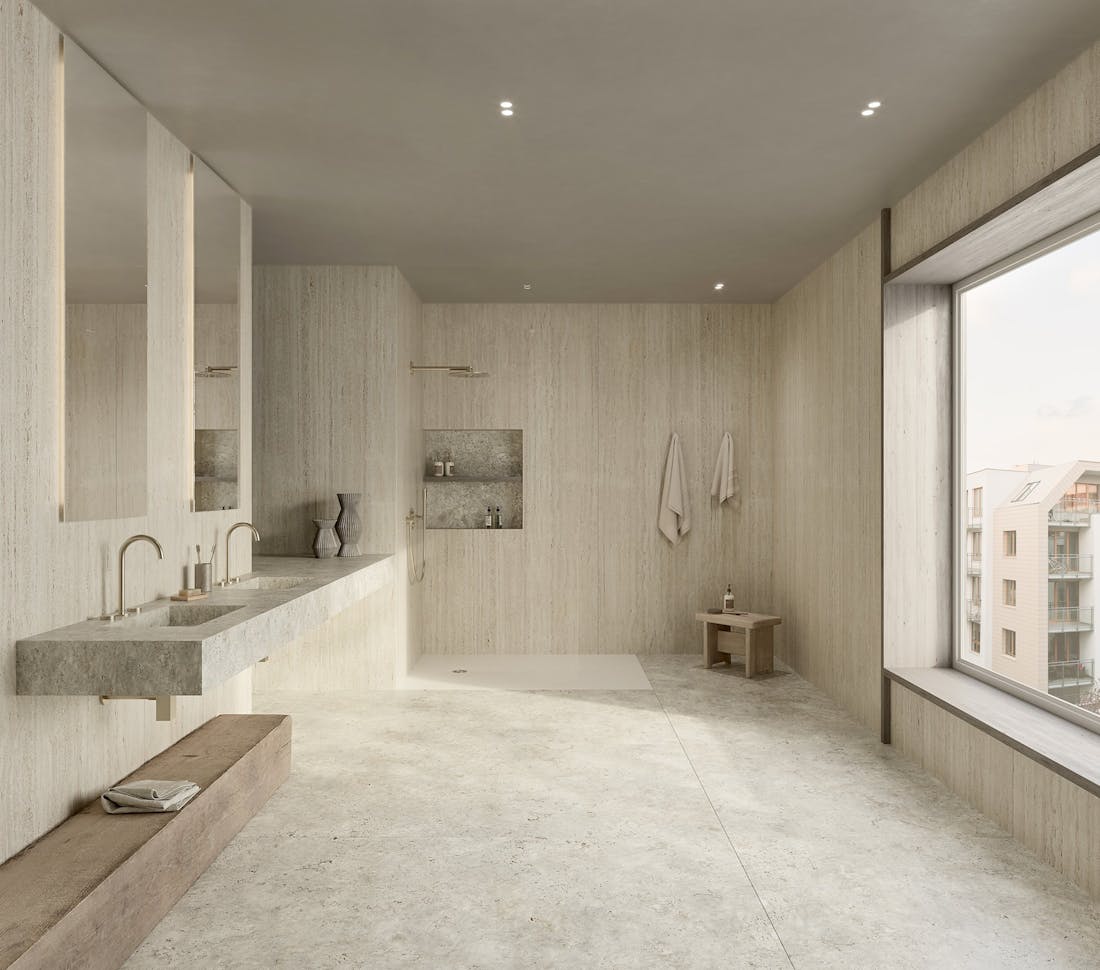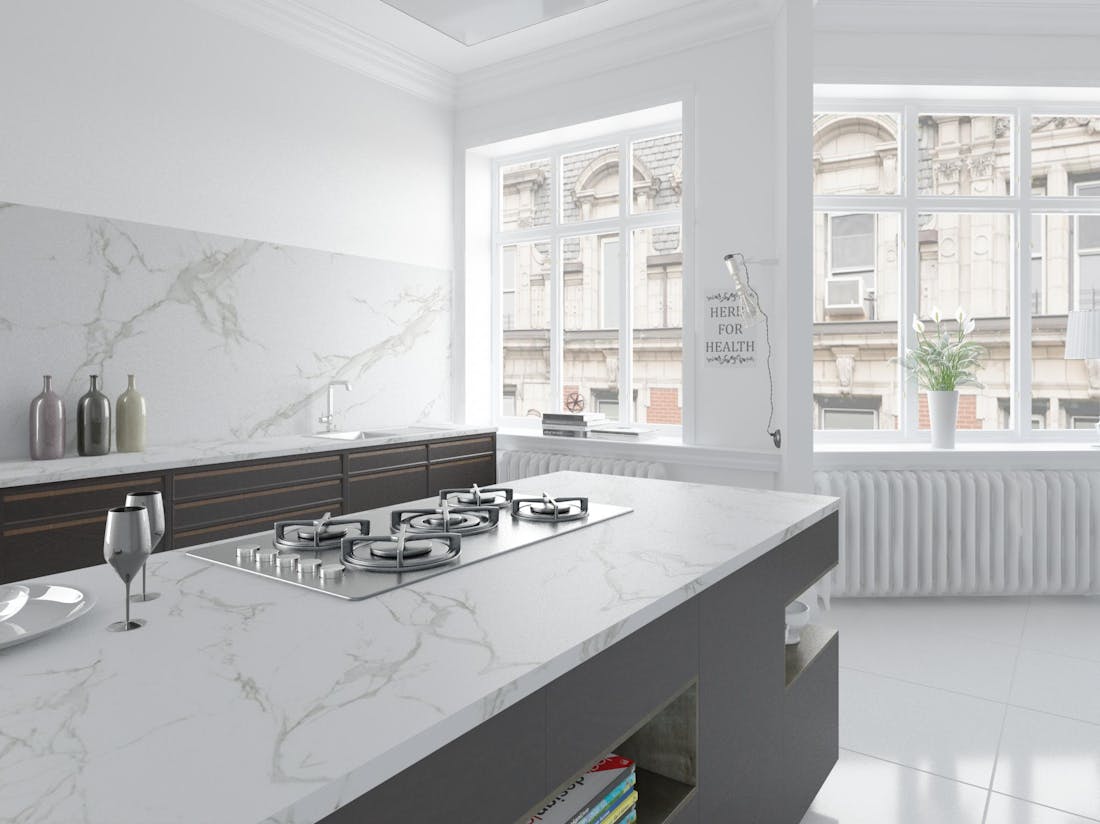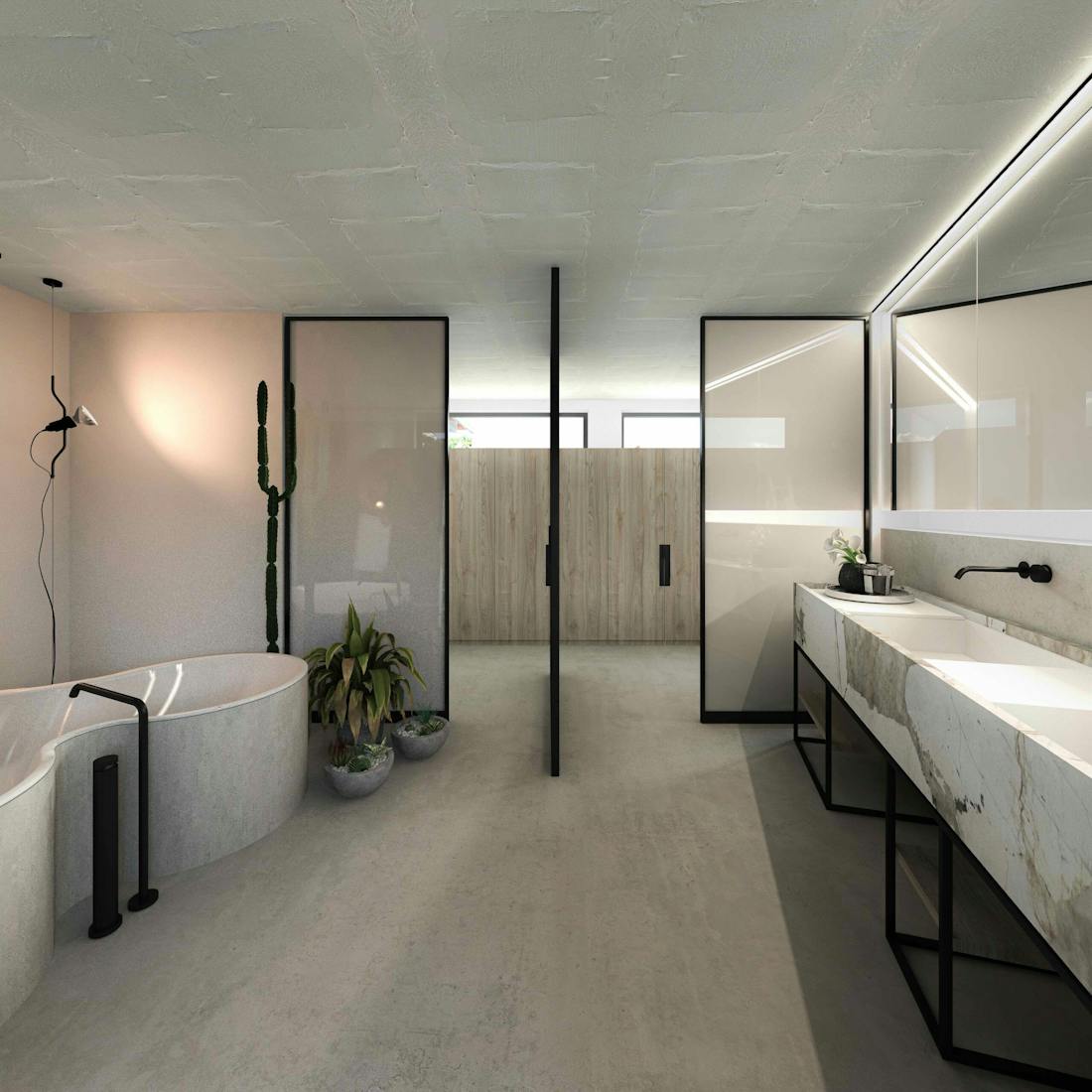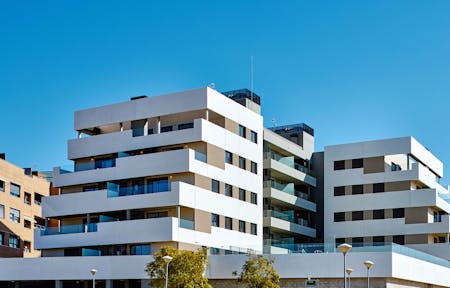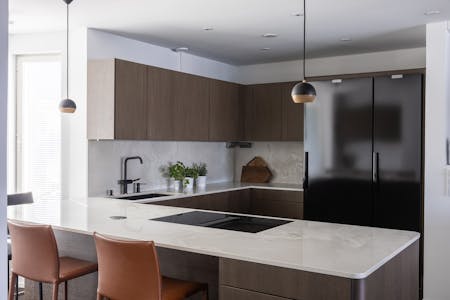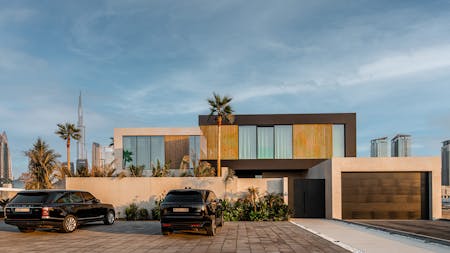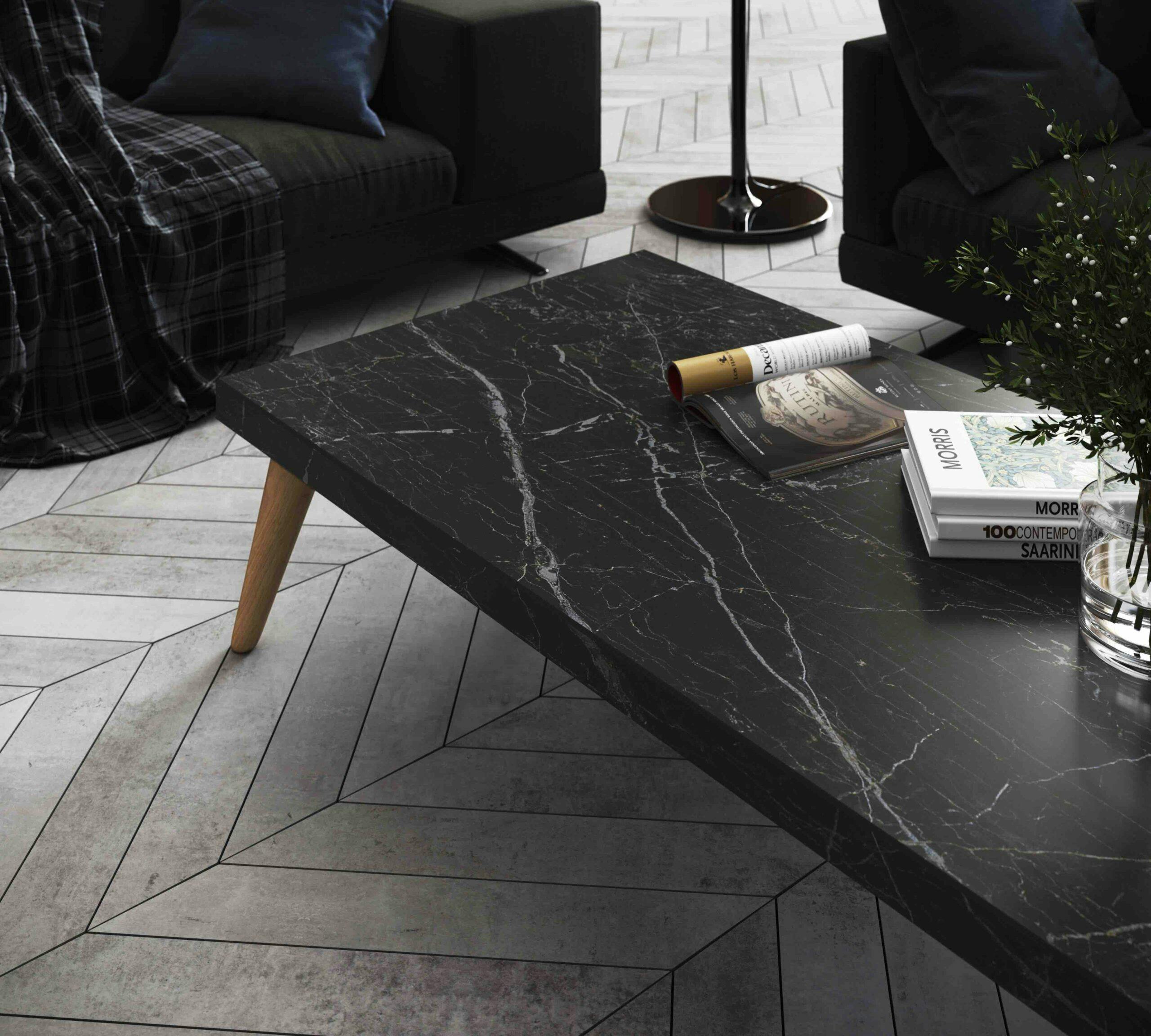
Dekton vs Porcelain: Which One Is the Best for Your Home?
Home » Blog & Événements » Dekton vs Porcelain: Which One Is the Best for Your Home?
Are you thinking about renovating your home? If so, you're probably wondering what material to use for your countertops. There are many options on the market, but two of the most popular are Dekton and porcelain. They are both durable, easy to clean, and look great. In this blog post, we'll compare Dekton and porcelain to help you make an informed decision.
Dekton and porcelain: differences and similarities
Here are some of the similarities and differences between Dekton and porcelain.
Dekton vs porcelain countertops
The main similarities between Dekton and porcelain countertops are that they are nearly impossible to stain and have roughly unlimited design potential. However, some differences should be noted.
Porcelain countertops come in larger sheet sizes, and they offer a lifetime warranty. Dekton countertops, on the other hand, are made from a combination of porcelain, glass, and quartz, and they are treated with heat and pressure to form slabs that are highly resistant to abrasion, heat, and UV light.
Another difference is that Dekton countertops are non-porous, so it is less likely to stain, etch, or scratch than other materials like granite or marble. Ultimately, the choice between these two materials comes down to budget and style preferences.
Heat and scratch resistant
Dekton and porcelain are highly heat and scratch-resistant materials, making them ideal for use in countertops and other surfaces. Dekton can withstand temperatures up to 300 degrees Celsius and is highly scratch resistant, scoring 7/10 on the Mohs scale of mineral hardness.
Porcelain can withstand temperatures up to 150 degrees Celsius and is also scratch resistant, although not as much as Dekton. Both materials are also resistant to stains, UV light, and abrasion. Additionally, porous materials like granite and marble are less likely to stain or scratch than either Dekton or porcelain.
Porosity
The porosity of Dekton and porcelain is drastically different in terms of their makeup and composition.
Dekton boasts very low porosity, making it extremely resistant to water and stains, which can be easily removed with standard cleaning products. That is why Dekton is ideal for outside surfaces.
On the other hand, porcelain slabs have a lesser thickness and lighter density compared to other minerals and undergo an extreme heating process that melts the minerals and covers the majority of the porcelain's pores. This provides it with excellent non-porous features that are comparable to quartz.
Additionally, Dekton has an almost null porosity, while porcelain has some porosity. Therefore, Dekton is more resistant to water, stains, and discolouration than porcelain.
Cleaning and maintenance
Cleaning and maintenance of Dekton and porcelain countertops are quite similar. You can follow the next tips:
- For general, day-to-day cleaning, use a hard surface spray cleaner, such as a non-toxic and biodegradable one. Alternatively, you can use a granite & marble cleaner for a streak-free shine.
- Avoid using harsh cleansers with degreasing solutions or bleach, as they can negatively impact the surface. Use a non-abrasive cloth or sponge.
- Try not to let acidic spills from beverages like coffee, red wine, and citrus dry on the surface, as this can leave a sticky residue.
- For more thorough cleaning, you can use a cream detergent combined with abrasive particles.
- Rinse the surface with hot water and wipe dry with a clean microfiber cloth.
- Because Dekton is non-porous, it does not need to be sealed.
Uses
Dekton and porcelain are both materials that are popularly used for a variety of applications.
Porcelain is a hard, glazed ceramic material that is incredibly resistant to scratches and staining and is suitable for use in both indoor and outdoor applications.
On the other hand, Dekton is a unique blend of natural raw materials that is highly resistant to heat, ultraviolet rays, scratches, and staining, making it perfect for countertops. It also has a low water absorption rate, making it ideal for outdoor applications. Dekton is typically used in kitchen countertops, façades, cladding, flooring, and furniture.
Is Dekton more expensive than porcelain?
Regarding porcelain vs Dekton, the price can be a deciding factor.
Generally speaking, Dekton tends to be more expensive than porcelain due to the additional raw materials used in its production and because it's a more recent innovation.
Porcelain is more cost-effective, with larger sheet sizes working to your advantage. However, the exact cost of your benchtop will depend on your project's unique aspects, such as fabrication cost, which can be quite labour-intensive and involve more cuts and mitred edges.
Conclusions Dekton vs porcelain
By examining the benefits and drawbacks between Dekton and porcelain, you can decide which type of countertop is right for your needs and budget. Porcelain countertops come in larger sheet sizes, but Dekton can withstand higher temperatures and has very low porosity, making it ideal for your home. Request a quote on Cosentino now and discover what Dekton can do for you.


 Retour
Retour